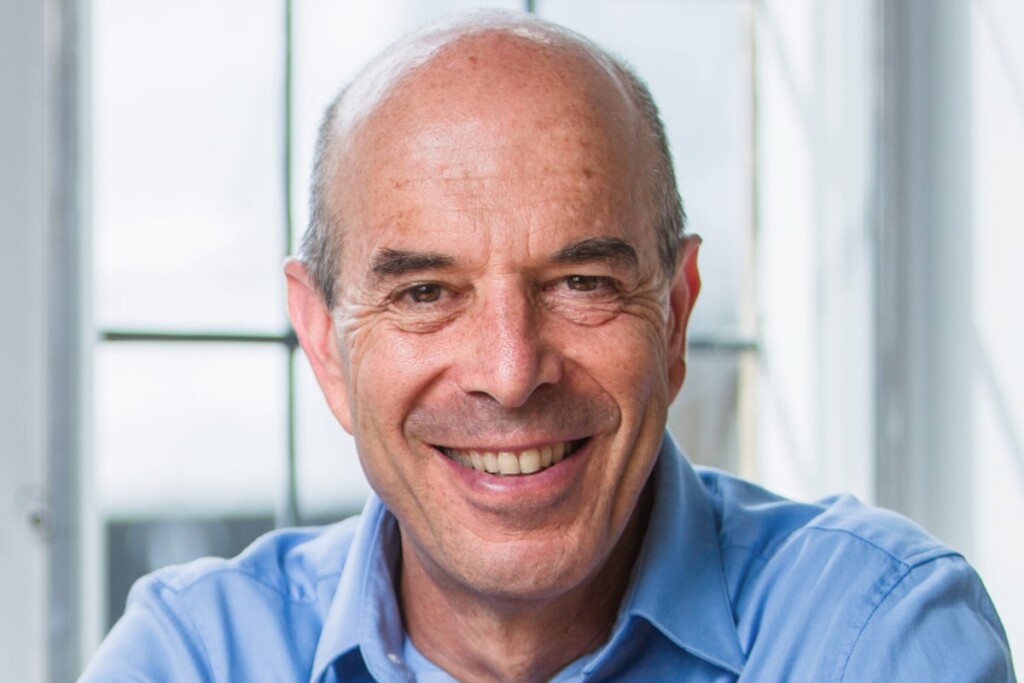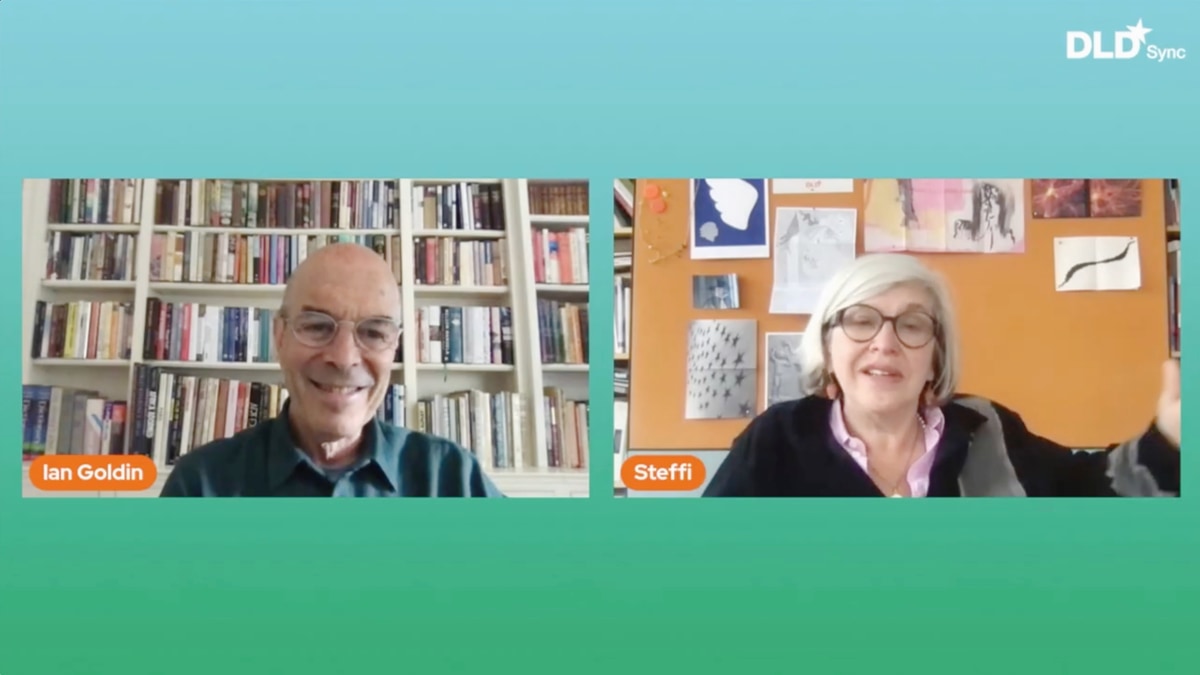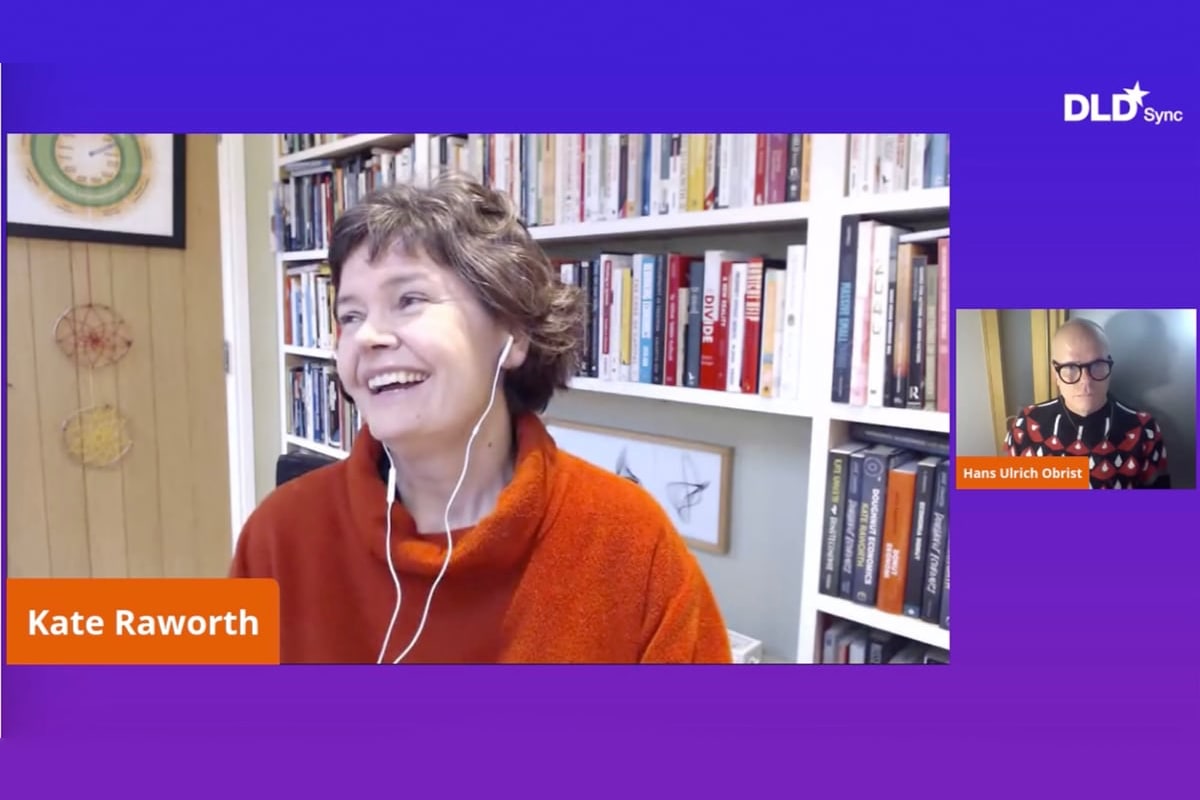DLD Sync

Covid-19: From Global Crisis to a Better World
Oxford economist Ian Goldin is one of the most astute observers of society in times of change. Many of his books have been international bestsellers. In his latest work, Rescue: From Global Crisis to a Better World, he analyzes the Covid-19 pandemic in the context of globalization, sustainability and social justice.
Our longing for things to go “back to normal” may be understandable, he argues – but it would actually be detrimental. “We need to do things differently”, he pointed out in his DLD Sync presentation. “It’s business as usual which created the pandemic.”
By learning from our mistakes, and by rethinking the way we live, and do business, in a globalized economy, “we could take a road to shared prosperity”, Goldin argues. In this sense, we should see the pandemic as a unique opportunity to tackle current and future challenges. “Why don’t we have a NATO-type organization to stop pandemics?”, the Oxford scholar asked.
After his presentation, Goldin spoke with DLD founder Steffi Czerny about his faith in science, why he thinks globalization is here to stay, and how lessons learned from the Covid pandemic could help mankind tackle climate change.

Ian Goldin
University of Oxford
Ian Goldin is the Oxford University Professor of Globalisation and Development and was the founding Director of the Oxford Martin School, the world’s leading center for interdisciplinary research into critical global challenges. Ian is the Director of the Oxford Martin Programme on Technological and Economic Change and the Future of Work.

Steffi Czerny
DLD Media
Steffi Czerny is Managing Director of DLD Media and co-founder of the DLD Conference as well as its global spin-offs. Steffi was identified as number 30 of The 2015 Wired 100 and has also been chosen as one of the 50 most inspiring women in European tech in 2015 by inspiring50.com for her success in bringing the international digital elite together at DLD.
Video

Sync Scroll
| Time | Topic |
| 0:05 | Welcome by Steffi Czerny |
| 3:10 | Presentation by Ian Goldin: “The reason I wrote Rescue is because I’m concerned that this pandemic is greatly exacerbating and revealing the fault lines in our societies. ” |
| 5:05 | Why “going back to normal” is not desirable. |
| 6:15 | How information sharing and globalization have brought enormous progress in past decades. |
| 8:20 | The power of connectivity. |
| 10:00 | Key question: “How can we manage globalization to ensure that this is the pandemic to end all pandemics?” |
| 10:25 | “If we stop pandemics, I believe we will also be stopping an escalation in climate change, we’ll be stopping financial crises, we would have learned to cooperate.” |
| 11:20 | “Pandemics need the whole world to manage. The next pandemic could come from anywhere…” |
| 12:15 | The Covid-19 pandemic has shown how quickly our world can change. “If governments have the will, and if we as individuals have the will, we can find a way.” |
| 14:45 | History shows that global crises act as catalysts. Example: World War II, which sped up the development of social welfare. |
| 16:20 | “If there’s one thing that this pandemic has taught us, is that we need to listen more carefully. That leaders need to listen more carefully.” |
| 19:00 | Better handling future crises will also require a shift in prorities. “We spend about 1,000 to 10,000 times more on our military preparedness than we do on pandemic preparedness. But all the intelligence agencies that publish reports, and evidence suggests, that a pandemic is a far greater risk to all of us.” |
| 21:10 | How will Covid-19 affect innovation and the future or work? “We are getting ideas by being in different situations, with different people, in a different conversation.[…] And that’s what we’re missing in the remote experience.” |
| 25:50 | How the coronavirus crisis has been increasing inequality. |
| 28:30 | Hopeful signs of solidarity, around the world, across generations. |
| 30:50 | The world is at a crossroads: “We could take a road that leads us to a much better world.” But this won’t happen if we wait until after the pandemic because when “everything’s back to how it was before, we’ll lose the energy for change.” |
| 34:20 | Why many countries led by women have managed the Covid-19 crisis better than others. |
| 36:00 | The pandemic will likely bring dramatic change in politics. “The old orthodoxies have been thrown out, there’s a lot more political space.” |
| 38:20 | The impact of education and generational change. |
| 42:15 | How social media has lead to a global “battle of ideas.” |
| 45:10 | After the baby boomers: “For a lot of young people, the future doesn’t look that bright.” |
| 47:00 | The pandemic confirms that we’re living in a new age of discovery – and a modern Renaissance. |
| 49:00 | Crucial lessons from the previous Renaissance. |
| 51:20 | Reasons to be optimistic about the future. |
| 56:00 | Revolutions of knowledge lead to new technologies – and the need to actively shape how these technologies are used. |
More DLD Sync

The New Code of Cities
